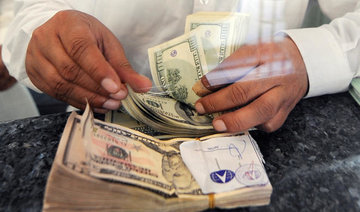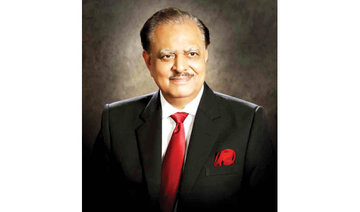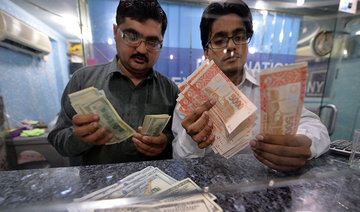KARACHI: Pakistan’s central bank on Saturday increased the key policy rate by 100 basis points (bps), bringing it up to 8.5 percent and making the decision effective from the beginning of the next month. The bank cited inflationary pressure in the economy, along with expanding external deficit and vulnerability to external shocks as key reasons for its decision.
“This assessment takes stock of the factors including higher-than-anticipated increase in international oil prices, an upward revision in domestic gas prices, further increase in regulatory duties on imports, and the continuing second-round impact of previous exchange-rate depreciations,” the State Bank of Pakistan (SBP) said in its statement.
The central bank maintained that the average headline inflation was expected to fall in the revised forecast range of 6.5 to 7.5 percent for the current fiscal year, FY19. “Inflation is inching up, particularly from March 2018 onwards. So far, in the first two months of FY19, headline CPI inflation has averaged 5.8 percent, as compared to 3.2 percent for the corresponding months of FY18, and an average of 3.9 for all of FY18. The jump is even more pronounced in core inflation -- a key measure reflecting the underlying inflationary pressures in the economy,” the SBP said.
The Asian Development Bank, in its recently released report, had also raised the inflation forecast to 6.5 percent in FY19 because of the currency depreciation and elevated international oil prices.
The SBP added: “Following a healthy growth of 5.8 percent in FY18, economic activity is likely to slow down in FY19 as the general macroeconomic policy mix is focusing toward stabilization. Specifically, the transmission of SBP’s policy rate hikes by 175 bps since January 2018 is still unfolding. The government is also now pursuing a fiscal consolidation program and has further announced regulatory measures to slow down the growing pressures on the external front. As a result, domestic demand is projected to decelerate in the coming months of FY19.”
The SBP projects the real GDP growth for FY19 to be around 5 percent. “The recent monetary and fiscal measures are likely to affect large-scale manufacturing. The latest information shows that cotton production is expected to miss its FY19 target of 14.4 million bales, with downside implications for agriculture sector growth. The ancillary services sector is expected to miss its FY19 target as well. Some positive impact is expected from the contribution of exports-led production and higher fertilizer production amidst depleting stocks and better availability of energy,” the statement added.
The central bank also noted that the current account deficit continues to pose a challenge. “Despite some growth in workers’ remittances and exports in the first two months of FY19, a notable increase in the value of oil imports has kept the current account deficit at $2.7 billion, as compared to $2.5 billion, in the corresponding period last year despite non-oil imports declining during the period. Owing to these developments SBP’s net liquid foreign exchange reserves have declined to $9 billion as of Sept. 19, 2018, compared to $9.8 billion at the end of FY18,” the central bank added.
The SBP noted: “Non-oil imports are responding to the contraction measures, a surge in oil prices is masking this improvement, and as a result the current account deficit remains high; rising trends in inflation mean that real interest rates have fallen and further, the unfolding global developments, whether in terms of oil-price shocks, protectionist trade policies and falling flows to the emerging markets, are the factors that all pose challenges to macroeconomic management in Pakistan.”
The SBP has aggressively raised interest rates during the calendar year. “We believe this will partially help in containing demand and import growth. But more measures need to be taken on the fiscal side to control external account issues,” Muhammad Sohail, financial expert and CEO of Topline Securities, commented.
However, some expert negate the notion that the interest rate hike will play an effective role in containing inflation. “Empirical evidence suggests that the interest or currency rate changes do not play an effective role in subduing inflation and increase the cost of capital in the economy. The rates should be kept stable at the lower side so that the economy can grow,” said Khurram Schehzad, senior financial analyst at JS Global Capital.

























